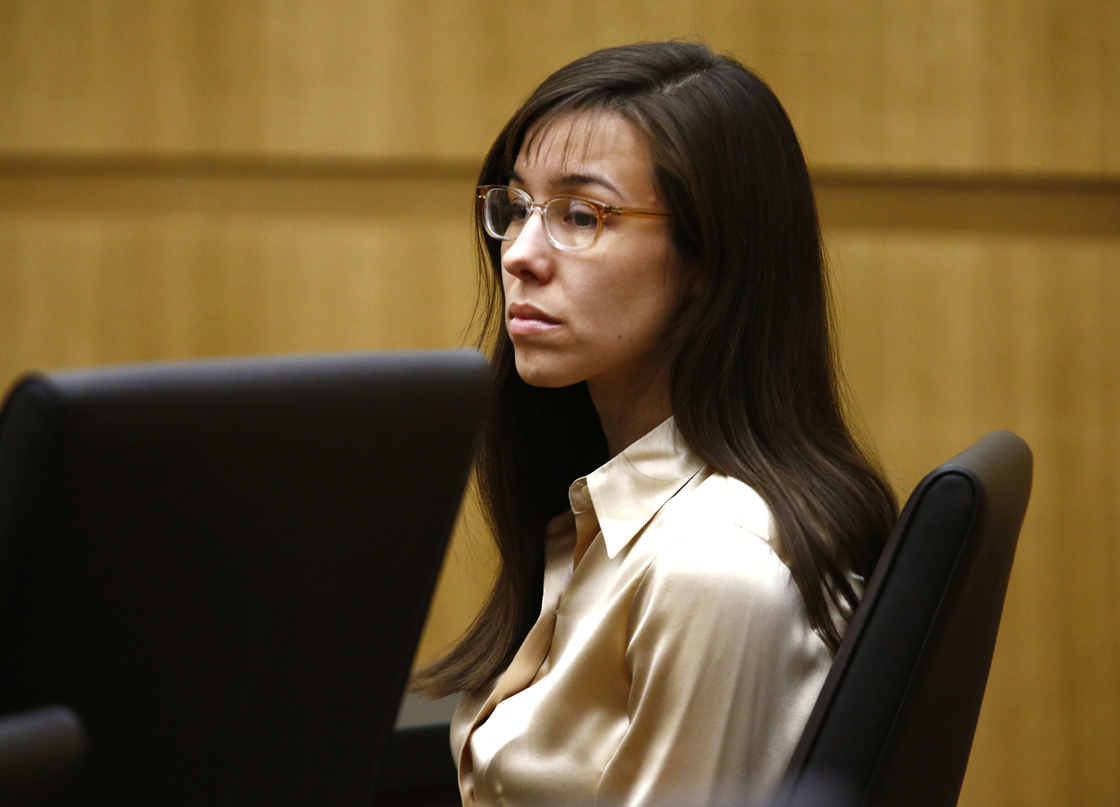PHOENIX – Defence attorneys for Jodi Arias asked the judge to remove them from the case and declare a mistrial Monday, arguing the frenzy surrounding the case has created a modern-day witch hunt.

The judge denied both motions, and Arias planned to take the stand Tuesday. Jurors will find out then if she tells them the same thing she told a local reporter: She’d rather be executed than spend her life in prison.
Defence attorneys told the judge they would call no witnesses after a key witness refused to take the stand because of death threats.
They argued the attention the case has received has made it impossible for Arias to receive a fair trial. Defence lawyer Kirk Nurmi alleged the prosecutor has fanned the flames with incendiary attacks on witnesses, stirring up outrage among the public. He noted an earlier defence expert witness also received death threats.
“This cannot be a modern day version … of witch trials,” Nurmi said.
After Judge Sherry Stephens denied their mistrial request, Nurmi and defence lawyer Jennifer Willmott asked to withdraw. The judge promptly rejected that request, too.
It was the second time in the past week that the defence has asked to step down.
- Daughter of woman who Edmonton police say was victim of intimate partner homicide calls for change
- B.C. woman banned from midwifery charged in infant’s death
- ‘A horror film’: Eyewitness describes fatal stabbing of 16-year-old outside Halifax mall
- Man used AI to plan fatal Cybertruck explosion in Las Vegas: police
The defence attorneys continued with their protest of the unfavourable rulings by saying they had no plans to call any witnesses, sending the court into recess as the lawyers worked to resolve the next step. They later decided Arias would speak to the jury Tuesday.

Get breaking National news
Arias, a close friend from California and an ex-boyfriend had been expected to speak to jurors before the panel begins deliberating whether to sentence the 32-year-old to life in prison or execution for murdering her lover in 2008.
The same jury convicted Arias on May 8 of first-degree murder in the death of Travis Alexander.
Last week, the panel heard tearful comments from Alexander’s brother and sister as they described how his killing has torn apart their lives.
Stephens instructed jurors they could consider a handful of factors when deciding what sentence to impose, including the fact that Arias had no previous criminal record. Stephens said they also could consider defence assertions that Arias is a good friend, had an abusive childhood and is a talented artist.
In opening statements, prosecutor Juan Martinez told jurors none of those factors should cause them to even consider a sentence other than death, given the brutal nature of the killing.
Nurmi explained to jurors that once they understand “who Ms. Arias is, you will understand that life is the appropriate sentence.”
Read more: Timeline of key events in the Jodi Arias murder case
Arias acknowledged killing Alexander at his suburban Phoenix home on June 4, 2008. She initially denied any involvement and later blamed the attack on masked intruders. Two years after her arrest, Arias said she killed Alexander in self-defence.
The victim suffered nearly 30 knife wounds, had his throat slit from ear to ear and was shot in the forehead. Prosecutors say the attack was fueled by jealous rage after Alexander wanted to end his affair with Arias and prepared to take a trip to Mexico with another woman.
The jury deliberated for about 15 hours over four days before reaching a verdict in the guilt phase of the trial. The panel later took less than three hours to determine the killing was especially cruel, meaning the death penalty would be a consideration for sentencing.
The ongoing penalty proceedings make up the trial’s final phase. Jurors are expected to begin deliberating Arias’ ultimate fate this week.
Under Arizona law, if the jury cannot reach a unanimous decision on sentencing, the panel will be dismissed and jury selection will begin anew. Another panel would then be seated to hear arguments in only the penalty phase to determine a sentence. If the second panel cannot reach a unanimous agreement, the judge will then sentence Arias to either her entire life in prison or life in prison with the possibility of release after 25 years.
The most anticipated part of the penalty phase will be when Arias speaks to jurors, though exactly what she will say remains a mystery. Within minutes of her murder conviction, Arias complicated efforts for her defence when she gave the interview to Fox affiliate KSAZ, saying she preferred death over life in prison.
Arizona defence attorney Thomas Gorman, who has handled dozens of death penalty cases, said Martinez may not need to mention Arias’ comments in the television interview to jurors, given they haven’t been sequestered throughout the trial.
“They just can’t avoid it,” Gorman said. “If they’re at a bar or a restaurant, they’re going to see and hear things.”
Arias also cannot choose the death penalty. It’s up to the jury to determine a sentence. And while death penalty appeals are automatic in Arizona, she could choose not to pursue additional appeals if she indeed wanted to die for her crime.







Comments